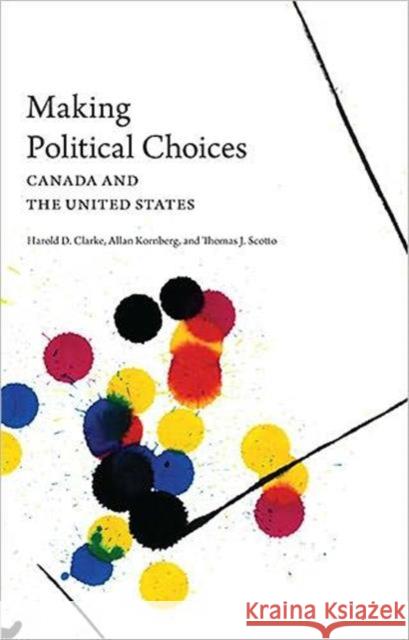Making Political Choices: Canada and the United States » książka
Making Political Choices: Canada and the United States
ISBN-13: 9780802096746 / Angielski / Miękka / 2008 / 304 str.
Recent national elections in Canada and the United States have been exciting, consequential contests. In the 2004 federal election in Canada, the Liberal Party narrowly clung to power after a volatile and bitter battle with the new Conservative Party. In 2006, the Conservative Party won a fragile victory, replacing the scandal-ridden Liberal government. In the 2000 American presidential election, Republican George W. Bush became the first candidate in over 100 years to capture the presidency without a majority popular vote. Four years later, Bush finally attained a narrow popular mandate but only after a hard fought campaign. Then, in 2006, the Republicans suffered a stunning reversal of political fortune, losing control of both Houses of Congress, as public opinion turned massively against the president.In Making Political Choices: Canada and the United States, Harold Clarke, Allan Kornberg, and Thomas Scotto employ a wealth of new survey data to describe these elections and evaluate competing theories of party support and voter turnout. While examining various arguments, the authors contend that a valence politics model provides a powerful explanation of voting behavior in Canada, the United States, and other mature democracies.











